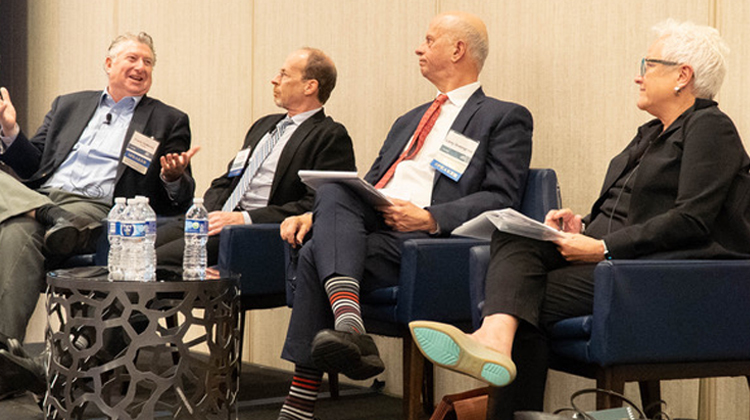Moderated by Guyon Knight, a panel consisting of Larry Greengrass, Debra Hall, Russel Bogen, and Frank DeMento engaged in a comprehensive discussion on the challenges and unique issues arising from reinsurance transactions. A video replay of this presentation is available on AIRROC’s On Demand plateform.
Here, we distill their insights into ten key points:
1. Legacy Business Challenges: When parties and arbitrators tackle disputes related to old legacy business, missing information such as witness testimonies, documents, motivations, and intentions can complicate matters. Various strategies are employed, including the use of schemes of arrangement to incentivize ceding companies to submit claims. Deciding between arbitration and litigation becomes crucial when dealing with parties in liquidation.
2. Honorable Engagement Clauses: Modern reinsurance agreements sometimes blend old honorable engagement clauses with contemporary provisions. This amalgamation occurs when companies need to reconcile current transactions with older agreements. It’s important to note that different honorable engagement clauses can yield diverse outcomes.
3. Custom and Practice: Custom and practice play a role in cases where the intention is to maximize capital efficiency rather than finality. Underwriters prioritize capital, which can differ from legal perspectives. Proving relevant custom and practice can be challenging, and experts may be necessary to interpret older, arcane contract terms.
4. Pre-Hearing Security: Arbitration panels may have the authority to award pre-hearing security, provided there is sufficient evidence supporting the award. However, changes in laws and regulations have made such awards less common in recent years.
5. Settlement Protocols: The construction of settlement protocols for dispute resolution can be effective if the terms align with the reinsurance agreement and both parties agree. Courts may review these protocols to ensure they are rooted in the original contract.
6. Changing Claims Handlers: When a legacy transaction involves changing the original claims handlers, the panel must consider whether these changes were made in good faith and if they have affected claims handling.
7. Resolving Disputes Permanently: Parties can settle disputes once and for all by using protocols that become binding rules.
8. Arbitration Expertise: Arbitrators, with their deep understanding of reinsurance concepts, are often preferred over judges. Confidential, non-precedential awards are favored by parties in the reinsurance industry.
9. Multiple Reinsurer Positions: Parties often prefer to have one cedant and one reinsurer in a case to prevent conflicting positions. Some reinsurance arbitration clauses dictate that multiple reinsurers must join together to challenge a claim.
10. Award Confirmation and Reasoning: Parties winning awards may seek confirmation, understanding that courts may not always seal underlying records. Reasoned awards now contain more detailed explanations, depending on the complexity of the case. Arbitrators may choose to ask parties whether they want a reasoned award during the organizational meeting.
In sum, reinsurance disputes pose complex challenges, particularly in legacy transactions. Understanding the nuances of honorable engagement clauses, custom and practice, and the role of arbitration panels is crucial. Settlement protocols and experienced arbitrators are valuable tools in achieving lasting resolutions, and the industry continues to favor confidentiality in award decisions.
